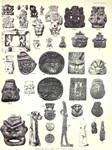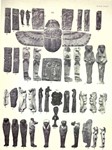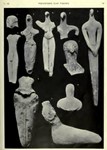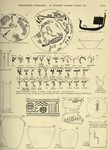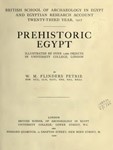Egipet Protohistory
Content: text (58 symbols)
Uploaded: 27.12.2018
Positive responses: 0
Negative responses: 0
Sold: 2
Refunds: 0
$1
Egypt was built by another civilization - this is how many articles on the subject of proto-history now begin. But in reality, this is no longer a theory, but a fact. And this fact was established and confirmed by the archaeologist Pitrey in 1911-1920 with the findings and calculations. Moreover, he spent the connection of this civilization with Russia!
English archaeologist William Matthew Flinders Petrie (1853–1942) was one of the most colorful figures in the history of Egyptology. William Flinders Petrie spent forty-six years in Egypt. For more than twenty years following, he studied Egyptian history at the University of London. About the past of Egypt, he collected so much information that no one had before him. As a result, Petrie became the largest specialist on any subject in all that concerned Egypt. Petrie excavated in Egypt until 1926, not dwelling on one thing. He, in his own words, "sifted all of Egypt," while making a journey into the depths of three thousand years.
Petrie made outstanding discoveries that, despite his substantiation and confirmation of the facts, were perceived as “bayonets” by the scientific world. Until now, these discoveries are silent.
The fact is that, having made the measurements (before the centimeter) of the pyramids in Giza, Pitris concludes that they were sent by OTHER CIVILIZATION. Moreover, as a result of the explosions, he fully proves this with finds, which he describes in detail in his book Amulets. But this is not all, he assumes that if this ancient civilization did not occur, then at least it had a close relationship with Russia. And only later the territory of Egypt turned into a Greek colony (which is new) and after centuries began the level of development that we know. About “their discoveries Pitrey publishes the book“ The Prehistory of Egypt ”.
For the first time, the prehistoric civilizations of Egypt were discovered by the Petri during the excavations of the Negada, which became a great discovery. Pitri took the unusual ceramic and other objects found during the excavations to pre-dynastic and buried the people who lived there as the New Race.
Flinders Peter claimed that there were connections between Ancient Egypt and the south of Russia, since his conviction was fully based on literary sources, many did not agree with this point of view. However, archaeological evidence began to appear confirming this statement.
The first testimony. The name of the god Ash is found five times in Egyptian inscriptions, and in four of the five it is quite clear that he has a foreign origin. For the first time, his image appears on the lids of vessels with wine from the time of the second dynasty (F. Pitrey, “Royal Tombs”), linking it with vineyards. During the V dynasty it is called "the god of the tribe Tehenu", the land of the olive (L. Borchard, "Sahura"). The connection with the vine, olive, rain makes it clear that Ash is not an Egyptian god by birth. During the XXVI dynasty, he is depicted with three heads - a lion, a snake and a vulture; in the inscription this god is called "Ash with many faces" ("many-sided Ash"). In the work "Universal Cosmography" by Sebastian Munster, published in 1545, there is a drawing of a three-headed god, who of course is the god Hashem, since he has a lion´s head, a snake and a vulture. Although Münster writes that these are the heads of a lion, a toad and an eagle, when comparing images, their similarities are found, despite the difference in artistic styles. The "eagle" is characteristic of the Egyptian vulture "feather collar"; the head of the "toad" is a copy of the serpent´s head. In the figure of Munster on the figure, a loincloth is, according to Europeans, a characteristic feature of a "demon". According to scientists, the image of the many-headed god Asha reminds of the Frankish king Markomir at a time when his tribe was in the territory of the Scythian state.
The second evidence in favor of the connection of the south of Russia wit
English archaeologist William Matthew Flinders Petrie (1853–1942) was one of the most colorful figures in the history of Egyptology. William Flinders Petrie spent forty-six years in Egypt. For more than twenty years following, he studied Egyptian history at the University of London. About the past of Egypt, he collected so much information that no one had before him. As a result, Petrie became the largest specialist on any subject in all that concerned Egypt. Petrie excavated in Egypt until 1926, not dwelling on one thing. He, in his own words, "sifted all of Egypt," while making a journey into the depths of three thousand years.
Petrie made outstanding discoveries that, despite his substantiation and confirmation of the facts, were perceived as “bayonets” by the scientific world. Until now, these discoveries are silent.
The fact is that, having made the measurements (before the centimeter) of the pyramids in Giza, Pitris concludes that they were sent by OTHER CIVILIZATION. Moreover, as a result of the explosions, he fully proves this with finds, which he describes in detail in his book Amulets. But this is not all, he assumes that if this ancient civilization did not occur, then at least it had a close relationship with Russia. And only later the territory of Egypt turned into a Greek colony (which is new) and after centuries began the level of development that we know. About “their discoveries Pitrey publishes the book“ The Prehistory of Egypt ”.
For the first time, the prehistoric civilizations of Egypt were discovered by the Petri during the excavations of the Negada, which became a great discovery. Pitri took the unusual ceramic and other objects found during the excavations to pre-dynastic and buried the people who lived there as the New Race.
Flinders Peter claimed that there were connections between Ancient Egypt and the south of Russia, since his conviction was fully based on literary sources, many did not agree with this point of view. However, archaeological evidence began to appear confirming this statement.
The first testimony. The name of the god Ash is found five times in Egyptian inscriptions, and in four of the five it is quite clear that he has a foreign origin. For the first time, his image appears on the lids of vessels with wine from the time of the second dynasty (F. Pitrey, “Royal Tombs”), linking it with vineyards. During the V dynasty it is called "the god of the tribe Tehenu", the land of the olive (L. Borchard, "Sahura"). The connection with the vine, olive, rain makes it clear that Ash is not an Egyptian god by birth. During the XXVI dynasty, he is depicted with three heads - a lion, a snake and a vulture; in the inscription this god is called "Ash with many faces" ("many-sided Ash"). In the work "Universal Cosmography" by Sebastian Munster, published in 1545, there is a drawing of a three-headed god, who of course is the god Hashem, since he has a lion´s head, a snake and a vulture. Although Münster writes that these are the heads of a lion, a toad and an eagle, when comparing images, their similarities are found, despite the difference in artistic styles. The "eagle" is characteristic of the Egyptian vulture "feather collar"; the head of the "toad" is a copy of the serpent´s head. In the figure of Munster on the figure, a loincloth is, according to Europeans, a characteristic feature of a "demon". According to scientists, the image of the many-headed god Asha reminds of the Frankish king Markomir at a time when his tribe was in the territory of the Scythian state.
The second evidence in favor of the connection of the south of Russia wit
No feedback yet
